Ji anaghi e si na odudo e pu ome - A yam does not start to grow its vines from the bottom. - Igbo Proverb
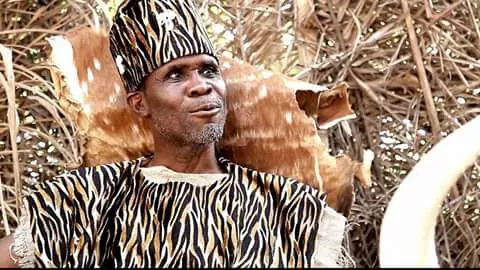
Of Yams and the Proper Order of Things
Once upon a time, there was a king. Like all kings do (otherwise, they would soon cease to be called kings), he had a kingdom. Like most kings desire, he had sons; in his case, two.
He liked to think he was a king who listened to his advisers when advisable and took decisive action when necessary, provided for his people in peace and defended them in war, represented them amongst other nations and stood alone when it was right to do so. In short, a good king.
Perhaps it was even true.
As with all kings that live long enough, a time came that he looked upon himself and found that he had grown old. Fortunately, he had his two sons, both grown into fine young men, as a ready-made legacy. All he had to do was choose which would follow him onto the throne.
Which to choose? The older Ejeagha who was bold and athletic yet musically inclined or the younger Omekagu who was studious and diplomatic yet with a streak of stubbornness? Which would make a better king? Both had traits that a good king would need, both had traits that would be of benefit to the kingdom and to the people, both had flaws that called all into question.
Alas, even a king does not know everything he thinks he does.
Thus, the king called upon his three wisest advisers, First Adviser, Second Adviser and Third Adviser to attend him in his chambers, along with many other prominent names, the Ichie, notable elders of the kingdom and their assorted retinue. Servants bustled to and fro. After the rounds of hospitality and kolanut and exchanges of fine proverbs, the king spoke: "I have decided to choose an heir from between my two sons."
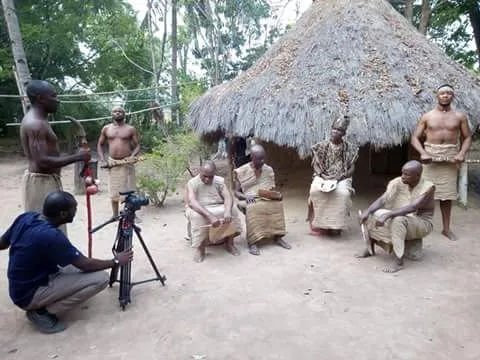
The advisers all spoke up expressing their agreement. Then Third Adviser, the youngest of the three, by far younger than the king and thus notable to be in such a prestigious position, frowned, his eyes narrowing as a thought seemed to strike him. His body language betrayed his uneasiness. The King asked him, "Third Adviser, whatever is the matter?"
And Third Adviser replied: "Your highness, which of your sons do you wish to make your heir?" Others spoke, a general reverberation of "Yes, that is the question" and "Does the king not have two sons?" and "Are they twins?"
And then the king spoke the words that Third Adviser had been dreading and spoke doom.
"My younger son, of course, Omekagu, in whom I am well pleased."
The room was briefly struck with utter silence. Then the eruption of noise and uproar began. Protestations of disaster and abomination and protestations against the noise of the protestations. Many of the visiting prominent men immediately stood and gathered their robes and staff of office and strode out amid the noise, unwilling to even countenance such a decision from their king. One among their number proclaimed and declaimed as he went that "a funu ro ebe ji si na odu e pu ome."
Soon there were far fewer left, among them the three Advisers who felt it was their duty to advise the king. So advise him they did.
First Adviser, the oldest of them, a childhood friend of the Igwe's father hummed in silence, deep in slow deep thought. Second Adviser started to speak only for Third Adviser to leap ahead and speak again: "Igwe, this is not done! You have an older son! The people will never accept this!"
And the king responded that he had made his decision.
Second Adviser started to speak again only to be interrupted by the cleared throat of First who finally spoke: "Igwe. I have some questions."
The king nodded. First continued: "We are both men of advanced years. Your father and I have known each other since the world was young and we were younger still. We fought together against enemies that brought war and threw them back with the strength of our arms. We stood together against enemies that brought trickery and outwitted them at their own game. We bought the unbuyable and dared the undareable and we kept this kingdom strong. As I advised him, so have I done the same for you."
The Igwe then said: "I have not heard any question yet." As Second Adviser sat up in his chair to open his mouth, First smiled and said that the question was obvious yet implied. Second Adviser sat back, blowing air from his nose like a bull too long in the pen. First continued: "When your father was chosen as Igwe, he was an only son. His father before him however was the first of seven sons. Your great-grandfather too was the oldest of six sons. You yourself are the oldest of three, may the ancestors welcome the souls of your brothers."
The king grunted.

First droned on: "Why then do you wish to turn the world on its head? The first is the first and that is the way of things."
The king said that he was the Igwe and had made his decision.
Second Adviser looked to his left and to his right. None were speaking, but pensive with thought. Once again, Second opened his mouth to speak and Third leapt to his feet: "This is unconscionable! This can never work ooo, my Igwe. This can never work! Oke oshimmiri anokataghi rie onye obula nke o na-ahughi ukwu ya anya. No leg is longer than the ocean is deep ooooo" Second threw up his hands in frustration and sat back, huffing, arms folded.
So it continued. First and Third Advisers pontificating to the king at great length, one with rumbling repetitious patience, the other with ebullient incredulity at the fact they were even having this conversation, both with a profusion of proverbs and idioms. Second Adviser sat back in mulish silence.
The Igwe's response was to get angry at this defiance of his will and dig in deeper. He made it clear that it was to be this way or no way at all.
At length, the advisers all rose to their feet in readiness of departure, First Adviser grunting as he stood. He spoke one last parting Igbo proverb in his slow rumbling tones, "Ijiji na-enweghi onye ndumodu ga e soro ozu banye n'ini" as he followed his colleagues out of the door.
Soon the Igwe was alone, surrounded by the darting shadows of servants and the cloak of his own resolute decision.

Having made his choice, the Eke Market day came by and the Igwe decided to make his decision public, witnessed to by all. He ordered that Omekagu dress in his finest regalia and be put upon a horse, also decorated in finest regalia, and that he parade about the market place on the busiest of market days. In this way, all might see him and know he was the chosen one, the next Igwe of their kingdom.
As all this began to happen, the older brother of Omekagu had of course been informed of these troubling events. Saddened, he took out his flute and began to play upon it a tune of lamentation.
Little do men know that sometimes the spirits or the gods or the ancestors listen to our cry. Sometimes they listen to that which we say not with words but with our heart. Sometimes they listen to our music.
Thus it was that during Omekagu's triumphant parade around the Eke market place that the sky grew dark and the ground shifted and the crops withdrew into the earth and a thunderclap struck a sound that shook the clouds. All looked up in shock, crying out prayers and wards.
Then they saw saw one who was not looking up. Or standing up. He was lying on the earth, next to his horse. Both were unmoving.
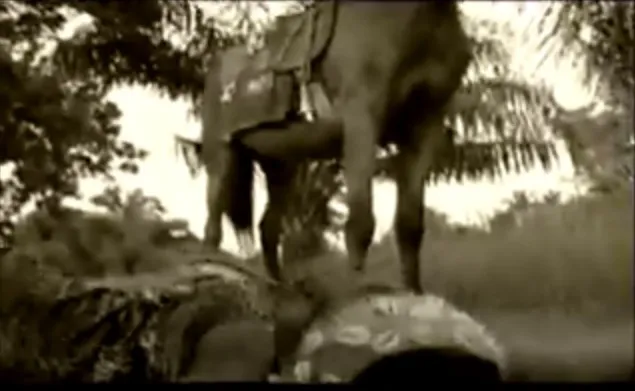
It was Omekagu.
Cataclysm! Shock! The Igwe was summoned, the whole palace converged. First and Third Adviser did not come. Healers and herbalists were summoned. Second Adviser came. The Igwe himself came, along with his wife, Aku, mother of both sons.
Things took a more shocking and supernatural turn when all attempts at moving the boy or the horse proved impossible. They lay, they breathed but the strongest men in the village could not so much as shift the dust beneath their forms. They brought horses, tied ropes and dragged till the horses collapsed and the ropes tore. Neither moved. It was as if the land itself had claimed them, as much a part of it as the mountains, as heavy and as immovable yet in human and equine form.
This was extraordinary. They called for the greatest dibia in all the land. He was a very tall man, as thin as a spear but otherwise dressed as any other villager. Dark of skin but no chalk, no symbols, no marks anyone could see. He had not been told any of the details, merely that the land had seized a boy and a horse. He stared at them for a long time then turned and walked away, wrapper flapping in the wind. Over his shoulder, his voiced finally rasped: "Gakwuru nwanne ya."
None tried to stop him.

Once again the Igwe sat on his throne. Once again, he summoned the elders, the Ichie and his three Advisers. Once again they all gathered in his chambers.
However, all was not as it was. The Igwe looked lost, despondent. His wife knelt sat on her throne next to him, silent and resolute and broken-eyed. The Elders, resplendent in their regalia, together seemed more kingly than the king himself, vindication poorly hidden by sympathy.
Most of all, among their number sat Omekagu's older brother, Ejeagha. Tall and strong, he seemed somehow diminished, shoulders not as firm and straight as they would normally be. Understandable for a man whose brother was currently trapped in some manner of mystical binding.
After the hubbub of loud voices and murmurs and whispers, at last the room was silent. Second Adviser opened his mouth to speak but Third Adviser leaped to his feet. "My Igwe, let us shorten this matter for there is surely no time to further delay. Forgive my bluntness but you were warned. O bukwa ihe jogbulu onwe ya, ma mmadu ga-afu oke rulu onye ozo, welu nye onye ya si na o fulu n'anya" said Third Adviser, not citing a proverb but flatly stating the fact. "There is no need to dwell further. The Dibia With No Name was called and he gave us our answer. Let us waste no more time, let us ask your son and heir, Ejeagha."
Ejeagha rose from his chair and, after observing all the usual protocols of greeting and acknowledging all elders and men of note that were present, he spoke. He said that he had no knowledge of how this had come about, that he had no supernatural powers and knew nothing of how this had happened to his brother. The Advisers and Ichie argued and debated and made a great hubbub of noise about how to proceed. The Dibia With No Name had told them to "Go to his brother." They were already in the room with him so clearly there was something more. They had had the lesser dibia look him over and found no spoor of magic or evil upon him, no marks of evil dibia on his body.
"Go to his brother," the nameless dibia had said. What could this mean?
Second Adviser suddenly got a big smile on his face but remained silent as all about him threw speculation in every direction. "Take him to the sacred river!" "Bring him to the shrine!" An endless mess of suggestions were thrown. Nobody was stupid enough to say "kill him" or "sacrifice him" but some were thinking it.
At last when it became clear nothing would be decided this way, the wife of the Igwe cleared her throat. The men stopped in shock and looked to their Igwe. He said nothing. While these were men of note in the community and thus should not be gainsaid by a woman in their midst, this was the wife of the Igwe and exceptions must be made. They shut up and she spoke.
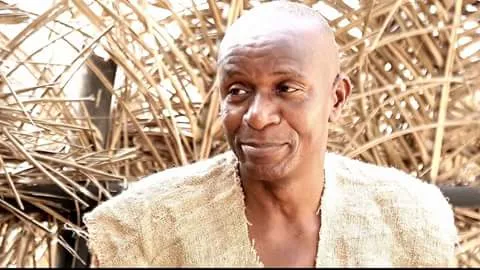
"Second Adviser, this is not the time to hold smugness and resentment close to your heart. If you have an answer of which you are so certain, speak it and have us know."
All eyes turned to him, even the dulled eyes of the Igwe and Ejeagha. Second Advisor preened, rose to his feet, adjusted his robes and ...
"Never mind, I have seen the answer."
It was the wife of the Igwe speaking again. Second Adviser's eyes bulged in their sockets. Even as he stared in shock, she turned to her lord husband and told him: "It's so obvious now, Nna m. The nameless dibia said we should go to him. My lord husband, apologize to your son. He did not do this to his brother but something has acted around him to make this so. Apologize to him."
The Igwe stared around. None dared speak. Without further ado, he rose to his feet and strode over to his son, who sprang up, afraid to sit when his lord father was standing. The older man stood before his son, their profiles of a mirror of past and future.
Then he knelt to one knee before his son, with a fluid grace that surprised those that knew him to be quite old in years. He lowered his head and placed his hands on his eldest son's feet and most abjectly beseeched his forgiveness. He pleaded openly with whatever spirit had acted to redress the balance of his acts.
The Igwe's wife turned to the other mighty men with cold eyes and they immediately leapt to join their Igwe in abasement to the young man. He was horrified but unable to flee. At last he could bear it no more. "Please, stop! This is not right! Please enough! My father, great men of our kingdom, please! No more!"
They rose with varying degrees of difficulty and embarrassment. A rainbow of facial expressions ranging from sorrow to disdain to flat anger abounded among them. Yet there seemed to be something different in the air, something taut, like the whole world was the string of a bow, stretched.
Ejeagha felt it too. Unlike the rest of them who felt it press upon them from without, he experienced it from within -- and he recognized it. This was the feeling that drove him to make music. Whenever he felt too much, there would be this great tension inside his very soul that could only be released by the power of his flute. He felt it now far stronger than ever, as if he would burst if he did not. Ejeagha seized his flute from within his robes and began to play, to blow like he never had before.
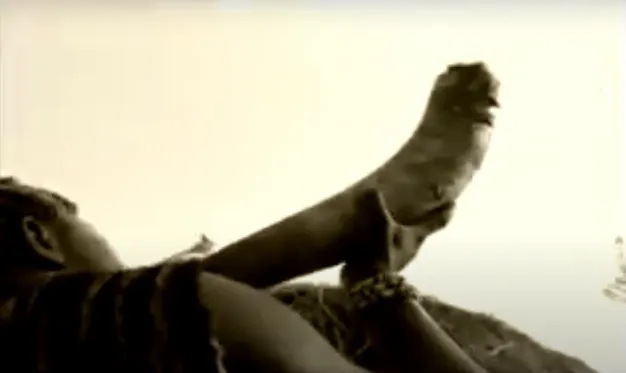
The music rippled in the air, visible like waves in water, then it hit their ears and rattled their bones. Somewhere in the places, things broke. The world shook. It was like that previous day in the Eke marketplace.
At last, he stopped. Spent. The room felt suddenly empty, full of old men who suddenly felt very young and afraid, as if something very huge had passed them by narrowly. Then the shouting came from outside. The men looked at each other, the Igwe's wife at her husband, the Igwe at no one at all.
Messengers rushed in. "Your Highness! Your Highness! The sky cracked open and thunder fell! Omekagu is awake! His horse too!"
Needless to say, jubiliation followed, flavoured bittersweet by the lesson painfully learned. Thus as we say, ji anaghi e si na odudo e pu ume, a yam does not start to grow its vines from the bottom.

The older sibling is not named in the original story so I have chosen to name him after Mike Ejeagha, the legendary Igbo musician who singlehandedly preserved many of these folktales through his music

Image Source
images 4 and 6 are screenshots from Mike Ejeagha's music video of the song "Ome Ka Agu"
And other are downloads from facebook
Glossary
Omekagu: Igbo name that means "he that behaves like a lion"
Igwe: the word refers to the heavens. The highest chief of an Igbo community is referred to as Igwe to show his place as a connection to the gods and the ancestors above
Ichie: a title held by prominent men directly beneath the Igwe himself in rank among the Igbo community
Ijiji na-enweghi onye ndumodu ga e soro ozu banye n'ini - Igbo proverb ('The housefly that has no advisers will follow a corpse into the burial grave.')
Oke oshimmiri anokataghi rie onye obula nke o na-ahughi ukwu ya anya. - Igbo Proverb ('The ocean never swallows a person with whose leg it does not come in contact.')
Ga kwuru nwanne ya: "Go to his brother."
Mba!: "No!"
Dibia: a doctor/mystical consultant/intercessor with the gods that serves the community, usually for good
O bukwa ihe jogbulu onwe ya, ma mmadu ga-afu oke rulu onye ozo, welu nye onye ya si na o fulu n'anya - "It is a very wrong thing to take what belongs to one person and give it to another just because you claim to love them."
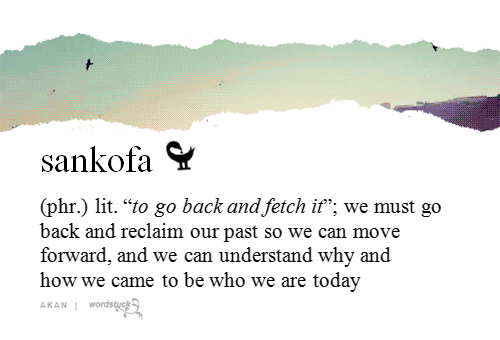

Thanks for reading!